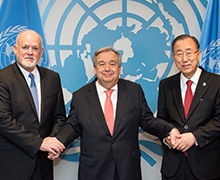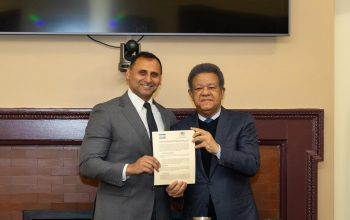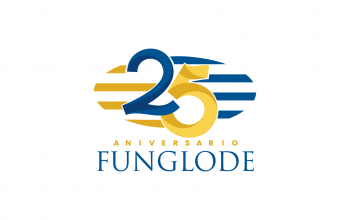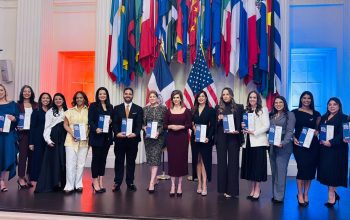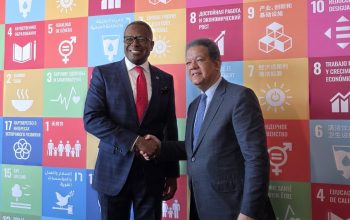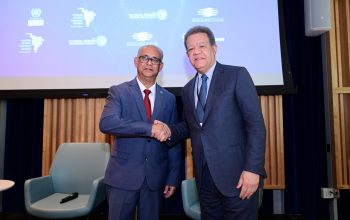news
UN Secretary General António Guterres Takes Oath of Office and Pledges to Work for Peace, Sustainable Development and a Reformed United Nations
December 13, 2016
António Guterres, Secretary-General-designate of the United Nations, took the oath of office at UN headquarters on Monday December 12, for his five-year term which begins on 1 January 2017. The oath was administered by Peter Thomson, President of the 71st session of the General Assembly.
GFDD was present as António Guterres was sworn in on Monday December 12, 2016 as the ninth and next United Nations Secretary-General. Mr. Guterres
pledged to reposition development at the center of the United Nations’ work and ensure that the Organization can change to effectively meet the myriad of challenges facing the international community.
“The United Nations needs to be nimble, efficient and effective. It must focus more on delivery and less on process; more on people and less on bureaucracy,” said Mr. Guterres after taking the oath of office at a ceremony before the 193-member
UN General Assembly.
Mr. Guterres, a former Prime Minister of Portugal (1995 to 2002) and former UN High Commissioner for Refugees (2005-2015) took the oath of office following the Assembly’s tribute to Secretary-General Ban Ki-moon, who steps down at the end of the month after leading the global Organization for the past 10
years.
The Secretary-General-designate paid tribute to Secretary-General Ban Ki-moon before highlighting three strategic priorities for the Organization: working for peace; supporting sustainable development; and reforming its internal management.
Peace
Noting that, often, the UN is tasked with peacekeeping in places where there is no peace to keep, he said that a greater conceptual clarity and a shared understanding of the scope of
peacekeeping was needed so as to pave the way for urgent reforms.
“The UN system has not yet done enough to prevent and respond to the appalling crimes of sexual violence and exploitation committed under the UN flag against those we are supposed to protect” emphasized Mr. Guterres.
Sustainable Development
On the second key element of the reform agenda, concerning the UN support to Member States in achieving the
Sustainable Development Goals (SDGs), Mr. Guterres said that development will form the center of the UN’s work, and that he will engage in a comprehensive reform of the UN development system – both at headquarters and at country levels.
Management reform
On management reforms, Mr. Guterres underlined the need to build on existing efforts and to implement recent reform initiatives. “Looking at UN staff and budgetary rules and regulations,
one might think some of them were designed to prevent, rather than enable, the effective delivery of our mandates,” he said, adding: “It benefits no one if it takes nine months to deploy a staff member to the field,”
Pledge to reach gender parity
He also pledged to respect gender parity from the start in all appointments to the Senior Management Group (SMG) and the Chief Executives Board (CEB), stressing: “By the end of
my mandate, we should reach full gender parity at the Under-Secretary-General and Assistant Secretary-General levels, including special representatives and special envoys.”
Conclusion
“In the end, it comes down to values, as was said so many times today. We want the world our children inherit to be defined by the values enshrined in the UN Charter: peace, justice, respect, human rights, tolerance and solidarity,” he said,
adding:
“The threats to these values are most often based on fear. Our duty to the peoples we serve is to work together to move from fear of each other, to trust in each other.”
“Trust in the values that bind us, and trust in the institutions that serve and protect us,” he emphasized.
Mr. Guterres, was appointed by the General Assembly on 13 October this year in what was the culmination of an historic
process Member States set in motion late last year: the selection of a new UN Secretary-General, traditionally decided behind closed-doors by a few powerful countries, for the first time in history, involved public discussions with each candidate vying for the leadership position.
For more information please visit the official news website of the United Nations at: http://www.un.org/News/

